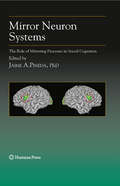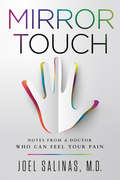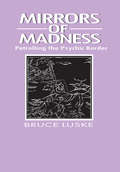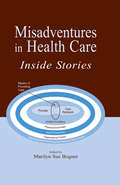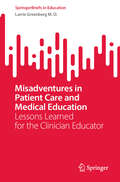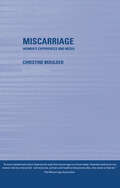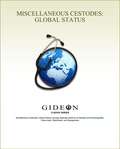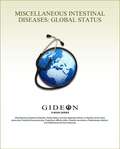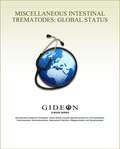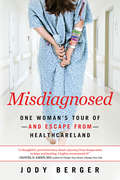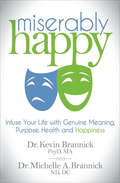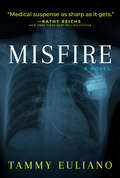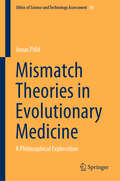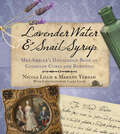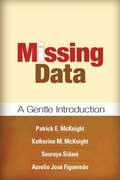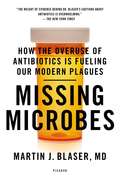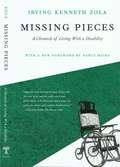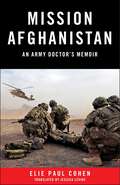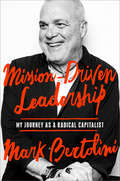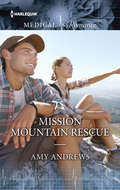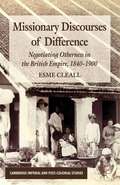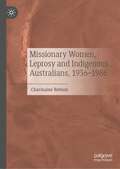- Table View
- List View
Mirror Neuron Systems
by Jaime A. PinedaThe discovery of mirror neurons and of a mirror neuron system in the human brain raises the interesting possibility that "mirroring" may constitute novel instances of mental simulation. It also provides the basis for unique processes such as "mindreading", the ability to make inferences about the actions of others. That an elementary process in motor cognition may be foundational to mindreading goes a long way in providing a rational basis for the study of social cognition. Social cognition is a broad discipline that encompasses many issues not yet adequately addressed by neurobiologists. In Mirror Neuron Systems: The Role of Mirroring Processes in Social Cognition, leading thinkers in this nascent field craft chapters aimed at sparking a dialogue regarding the relevance of mirroring neural systems in cognition. Thought-provoking and cutting-edge, Mirror Neuron Systems: The Role of Mirroring Processes in Social Cognition provides the basis for extended discussion among interested readers and lays down the guidelines for future research in this fascinating and expanding field. It addresses issues common to different perspectives, raises contrary views, and creates the basis for an extended dialogue and discussion.
Mirror Touch: Notes from a Doctor Who Can Feel Your Pain
by Joel SalinasChallenging our understanding of what it means to be human, Joel Salinas, a Harvard-trained researcher and neurologist at Massachusetts General, shares his experiences with mirror-touch synesthesia, a rare and only recently identified neurological trait that causes him to feel the emotional and physical experiences of other people. Performing a spinal tap, he feels the needle slowly enter his lower back. If a disoriented patient flies into a confused rage, Salinas slips into a similarly agitated physical state, and when a patient dies, he experiences an involuntary ruin—his body starts to feel vacant and lifeless, like a limp balloon. Susceptible to the pain and discomfort of his patients, most of whom suffer from a host of disorders and extreme injuries, Salinas uses his trait to treat their symptoms, almost as if they were his own. At the same time, in his personal life, his mirror touch blurs the boundaries between himself and those close to him until he ends up inextricably entangled, no longer able to differentiate where he ends and someone else begins. Salinas refers to his condition as a kind of compulsory mindfulness, a heightened empathic ability that offers him invaluable clues about how to see and live the world through other people’s perspectives. This heightened sense of awareness is at the center of Mirror Touch. Through his experiences, both in his neurological practice and his personal life, Salinas offers readers insights about mirror-touch synesthesia and how the brain, in its endless wonder, can sometimes perform in a nearly superhuman, extrasensory way. In the process, Salinas reveals the full power and potential of his trait, as well as its thorny complications and often debilitating limitations. Beautifully written with intelligence and compassion and anchored by the latest developments in neurology, psychology, and psychiatry, Mirror Touch is an enthralling and wholly original investigation into the unexplored corners of the brain, where the foundation of human experience and relationships take root—everything it means to think, to feel, and to be.
Mirrors of Madness: Patrolling the Psychic Border (Social Problems And Social Issues Ser.)
by Bruce LuskeMirrors of Madness depicts the social-psychological processes and institutional consequences of psychiatric staffs experience of ""closet insanity"" (private worries about theirown social and psychological competence) and ""reverse role modeling"" (identification with their labeled psychotic clients' public behavior).The book shows how, in attempting to ward off the threat involved in these processes, staffs tend to be more vigilant of their own behavior while redirecting their insecurities toward their clients in the form of derogatory humor in psychiatric evaluations. These and other activities are shown to be inhibiting factors in the rehabilitative function of social control agencies.
Misadventures in Health Care: Inside Stories
by Marilyn Sue BognerMisadventures in Health Care: Inside Stories presents an alternative approach to attributing the cause of medical error solely to the health care provider. That alternative, the systems approach, pursues why an incident occurs in terms of factors in the context of care that affect the care provider to induce an error. The basis for this approach is the fact that an error is an act, an act is behavior, and behavior is a function of the person interacting with the environment. Eleven vignettes illustrate the importance of the systems approach by describing health care incidents from the perspective of the care providers--the perspective that can identify the factors that actually affect the provider. These stories provide general readers with opportunities to apply their knowledge in analyzing incidents to identify error-inducing factors. This book is important reading for policymakers, researchers and practitioners in law and in all medical specialties, and professionals in the social sciences, human factors, and engineering. In addition to sensitizing the reader to the importance of contextual factors in error, Misadventures in Health Care is a case study reference to supplement texts in professional schools such as law and medicine, as well as the full range of academic disciplines. It also is important reading for the general public because it presents an approach for addressing a very pressing social problem-- that of misadventures in health care.
Misadventures in Patient Care and Medical Education: Lessons Learned for the Clinician Educator (SpringerBriefs in Education)
by Larrie Greenberg M.D.This book offers a perspective not often addressed in medicine and medical education: errors or misadventures in patient care and education. In 1999, a white paper was created by the Institute of Medicine—"To Err is Human: Building a Safer Health System"—that addressed errors made around patient care and what that cost is in lives and dollars to the public each year. This initiative resulted in more safeguards in the system, including attention to quality improvement. In fact, whereas there has been a focus on patient safety since that paper, the same emphasis has been lacking in medical education, the foundation of which represents how we teach future physicians. There currently are no other books on the topics of patient care and education, with Jerome Groopman's Book on &‘&’How Doctors Think&’&’ being one of the few publications that focuses on errors in patient care but not necessarily how to avoid or correct those errors. This book is divided into major activities for those faculty in academic health settings, physicians and non-physicians, who assume the major responsibility for teaching, patient care, educational scholarship, mentoring, and administrative duties. These are, by definition, clinician educators (CE) and include all those in academic health centers, physicians and non-physicians who care for patients and teach future practitioners. In fact, medical and health science students in addition to resident trainees would benefit from reading this book as they traverse curricula aimed at educating future practitioners. The book is divided into sections based on responsibilities noted above, e.g., teaching and patient care, and I point out common errors in the healthcare team performance, with comments on how to address those errors. I cover all the responsibilities of clinician educators in academic medical centers, including leadership or administrative skills. The content is largely based on the author's long experience as a CE in addition to evidence-based information about patient care and educational theory.
Miscarriage: Women's Experiences and Needs
by Christine MoulderApproximately one in four pregnancies ends in miscarriage but for each woman the experience is unique. This sympathetic and helpful book explores the many different ways in which women physically experience miscarriage and emotionally react to it. Drawing on the experiences of over 350 women, it will help every woman who has miscarried make sense of her loss and find her own way of coping with the confusion that frequently follows.Many aspects of miscarriage are covered including difficult issues that are often avoided:* the nature of the loss: tissue, embryo, foetus or baby?* guilt about an earlier abortion* explaining miscarriage to other children* the effect of miscarriage on a relationship* returning to work after miscarriage* coping with repeated miscarriages.The text also provides a set of guidelines to good practice for professionals, based on what women say they find helpful. Professionals who want to evaluate their own practice or develop the service they offer will find this an invaluable reference.
Miscellaneous Cestodes: Global Status 2010 edition
by Dr Stephen Berger Gideon InformaticsMiscellaneous Cestodes: Global Status is one in a series of GIDEON ebooks which summarize the status of individual infectious diseases, in every country of the world. Data are based on the GIDEON database (www.gideononline.com) which relies on standard text books, peer-review journals, Health Ministry reports and ProMED, supplemented by an ongoing search of the medical literature. Chapters are arranged alphabetically, by country name. Each section is divided into five subsections. 1. Descriptive epidemiology 2. Summary of clinical features 3. Global status of the disease 4. Status of the disease in a specific country 5. References Miscellaneous Cestodes: Global Status includes separate sections on Bertiella and Inermicapsifer, Coenurosis, Dipylidiasis, and Sparganosis.
Miscellaneous Intestinal Diseases: Global Status 2010 edition
by Dr Stephen Berger Gideon InformaticsMiscellaneous Intestinal Diseases: Global Status is one in a series of GIDEON ebooks which summarize the status of individual infectious diseases, in every country of the world. Data are based on the GIDEON database (www.gideononline.com) which relies on standard text books, peer-review journals, Health Ministry reports and ProMED, supplemented by an ongoing search of the medical literature. Chapters are arranged alphabetically, by country name. Each section is divided into five subsections. 1. Descriptive epidemiology 2. Summary of clinical features 3. Global status of the disease 4. Status of the disease in a specific country 5. References Miscellaneous Intestinal Diseases: Global Status includes separate sections on Bacillus cereus food poisoning, Clostridial food poisoning, Clostridium difficile colitis, Enteritis necroticans, Plesiomonas infection, and Staphylococcal food poisoning.
Miscellaneous Intestinal Trematodes: Global Status 2010 edition
by Dr Stephen Berger Gideon InformaticsMiscellaneous Intestinal Trematodes: Global Status is one in a series of GIDEON ebooks which summarize the status of individual infectious diseases, in every country of the world. Data are based on the GIDEON database (www.gideononline.com) which relies on standard text books, peer-review journals, Health Ministry reports and ProMED, supplemented by an ongoing search of the medical literature. Chapters are arranged alphabetically, by country name. Each section is divided into five subsections. 1. Descriptive epidemiology 2. Summary of clinical features 3. Global status of the disease 4. Status of the disease in a specific country 5. References Miscellaneous Intestinal Trematodes: Global Status includes separate sections on Echinostomiasis, Fasciolopsiasis, Gastrodiscoidiasis, Heterophyid infections, Metagonimiasis, and Nanophyetiasis.
Misdiagnosed
by Jody Berger"Berger movingly details her journey to healing. Her indefatigable quest...underscores the fact that there is no such thing as one size fits all in medicine."--Gayatri Devi, MD, clinical associate professor, NYU School of Medicine, and author of A Calm BrainTaking charge of your health has never been so important as it is today.Jody Berger has discovered this first hand: at forty-three, the award-winning journalist and marathoner sees a doctor about a minor tingling sensation in her hands and feet. One MRI later, she is diagnosed with multiple sclerosis and told to pick a drug and accept her fate. Instead Jody starts asking questions--only to receive a different diagnosis from each specialist she turns to, from vitamin deficiencies to metal toxicity to depression. In this powerful, witty, and eye-opening account of her misadventures from misdiagnosis to miraculous recovery, Jody offers insightful tips on how to ask doctors the right questions to get the answers and treatment you need, listen to your body, and choose health over illness. After all, while we can't always heal, we can always take control of our health and ourselves--starting now."In this compelling, beautifully written book, Jody Berger offers an empowering look at the importance of finding the strength and confidence to take charge of your health."--Mary Shomon, New York Times bestselling author and patient advocate
Miserably Happy: Infuse Your Life with Genuine Meaning, Purpose, Health and Happiness
by Dr. Michelle A. Brannick Dr. Kevin BrannickIn this unique self-help book, two doctors offer an innovative approach to contentment and wellness that begins with ending our addiction to &“happiness.&” Miserably Happy offers a unique take on the popular subject of happiness. Acknowledging the positive aspects of this powerful emotion, the book also explores its negative consequences. The truth is that all too often the pursuit of happiness—especially in its modern definition as the experience of pleasure—can lead to misery. In Miserably Happy, you will discover a new definition of happiness based in the physical, mental, and spiritual properties of being human. The human mind, aligned with our biology, defines our health and wellness. As the authors point out: &“In living within our created nature we become deeply connected to ourselves, others, our communities, the environment and, indeed, the universe. . . . The secret to lasting genuine happiness is found in nature.&” Providing a bold new definition of healthy human functioning and development, Miserably Happy can be your path to genuine meaning, purpose, and happiness in your life.
Misfire (The Kate Downey Medical Mystery Series #2)
by Tammy EulianoA device that can save a life is also one that can end it Kadence, a new type of implanted defibrillator, misfires in a patient visiting University Hospital for a routine medical procedure—causing the heart rhythm problem it's meant to correct. Dr. Kate Downey, an experienced anesthesiologist, resuscitates the patient, but she grows concerned for a loved one who recently received the same device—her beloved Great-Aunt Irm. When a second device misfires, Kate turns to Nikki Yarborough, her friend and Aunt Irm's cardiologist. Though Nikki helps protect Kate's aunt, she is prevented from alerting other patients by the corporate greed of her department chairman. As the inventor of the device and part owner of MDI, the company he formed to commercialize it, he claims that the device misfires are due to a soon-to-be-corrected software bug. Kate learns his claim is false. The misfires continue as Christian O'Donnell, a friend and lawyer, comes to town to facilitate the sale of MDI. Kate and Nikki are drawn into a race to find the source of the malfunctions, but threats to Nikki and a mysterious murder complicate their progress. Are the seemingly random shocks misfires, or are they attacks? A jaw-dropping twist causes her to rethink everything she once thought she knew, but Kate will stop at nothing to protect her aunt and the other patients whose life-saving devices could turn on them at any moment.Perfect for fans of Robin Cook and Tess Gerritsen While the novels in the Kate Downey Medical Mystery Series stand on their own and can be read in any order, the publication sequence is:Fatal Intent Misfire
Mismatch Theories in Evolutionary Medicine: A Philosophical Exploration (Ethics of Science and Technology Assessment #30)
by Jonas PöldThis book investigates the limits and possibilities of mismatch theories in evolutionary medicine, a topic that has not yet received much attention in philosophy. Mismatch explanations are part of a broader attempt to establish evolutionary thinking as a foundation for human medicine. Although mismatch explanations are well-established in ecology to account for extinction risks, the ongoing attempts to transfer them into human medical contexts are riddled with conceptual and ethical problems. This book offers a comprehensive analysis of the theoretical presuppositions as well as the normative implications associated with mismatch theorizing in evolutionary medicine
Miss Ambler's Household Book of Georgian Cures and Remedies: Miss Ambler's Household Book of Georgian Cures and Remedies
by Marilyn Yurdan Nicola Lillie Laura LillieElizabeth Ambler started compiling her household book of cures in the early eighteenth century, including historic treatments passed down over the decades. These intriguing remedies include Sir Walter Raleigh’s Receipt against Plague, Viper Broth and Snail Milk Water, as well as Ginger Bread and Apricot Ratafia. In addition to traditional flowers and herbs, ingredients consist of precious stones, exotic and expensive spices, and large amounts of brandy and wine.Set against the backdrop of the family’s country houses, silverware and lavish portraits, this book is much more than just a collection of curiosities: it offers a fascinating insight into the sickness and health of our Georgian ancestors, and into what really went on in their kitchens.
Miss Nightingale's Nurses: During the toughest of times, has she finally found her calling? (The Nursing Series #1)
by Kate EasthamDiscover the first heartwarming novel in Kate Eastham's nursing series in this gripping and compelling story of strength'Deftly written . . . a moving account of loss, as well as self-discovery and achievement' Woman's Own'A vivid, entertaining read which brought history alive' 5***** Reader Review_________ From the docks of Liverpool to a distant battlefield, can one girl find her brother and save herself? Ada Houston's life is shattered when her brother Frank goes missing following an accident at the docks. But a short time later she hears a rumour that he survived and left Liverpool to fight a foreign war. Determined not to lose him a second time she boards a ship to bring him home. But the battlefields of the Crimea are a hostile place for a penniless young woman. Then one day a lifeline is thrown her way as she is offered the chance to train as a nurse under the famous Florence Nightingale. Working in the most terrible of conditions, Ada shows an aptitude beyond anyone's expectations as she cares for her injured countrymen, makes new friends and enjoys the first flutter of romance. But Frank is still missing and she needs to find him before it's too late . . ._________'A wonderfully written book' 5***** Reader Review'Gripped me right from the start' 5***** Reader Review'You felt you were with them' 5***** Reader Review
Miss Pinkerton (The\hilda Adams Mysteries Ser. #1)
by Mary Roberts Rinehart'A literary celebrity with few rivals ... she wrote more bestselling novels ... over a longer period than almost any other American writer' WASHINGTON POSTEveryone agrees that Herbert Wynne wasn't the type to commit suicide. But he has been found, shot dead, the only other possible killer his bedridden aunt.Inspector Patton of the Homicide Division sees this as the perfect opportunity to send in Hilda Adams, a nurse with a very special talent for detection. But when the sleuthing nurse arrives at the mansion, she finds more intrigue than anyone outside could possibly have imagined - and a killer on the loose...
Missing Data
by John W. GrahamMissing data have long plagued those conducting applied research in the social, behavioral, and health sciences. Good missing data analysis solutions are available, but practical information about implementation of these solutions has been lacking. The objective of Missing Data: Analysis and Design is to enable investigators who are non-statisticians to implement modern missing data procedures properly in their research, and reap the benefits in terms of improved accuracy and statistical power. Missing Data: Analysis and Design contains essential information for both beginners and advanced readers. For researchers with limited missing data analysis experience, this book offers an easy-to-read introduction to the theoretical underpinnings of analysis of missing data; provides clear, step-by-step instructions for performing state-of-the-art multiple imputation analyses; and offers practical advice, based on over 20 years' experience, for avoiding and troubleshooting problems. For more advanced readers, unique discussions of attrition, non-Monte-Carlo techniques for simulations involving missing data, evaluation of the benefits of auxiliary variables, and highly cost-effective planned missing data designs are provided. The author lays out missing data theory in a plain English style that is accessible and precise. Most analysis described in the book are conducted using the well-known statistical software packages SAS and SPSS, supplemented by Norm 2.03 and associated Java-based automation utilities. A related web site contains free downloads of the supplementary software, as well as sample empirical data sets and a variety of practical exercises described in the book to enhance and reinforce the reader's learning experience. Missing Data: Analysis and Design and its web site work together to enable beginners to gain confidence in their ability to conduct missing data analysis, and more advanced readers to expand their skill set.
Missing Data
by Patrick Mcknight Katherine McknightWhile most books on missing data focus on applying sophisticated statistical techniques to deal with the problem after it has occurred, this volume provides a methodology for the control and prevention of missing data. In clear, nontechnical language, the authors help the reader understand the different types of missing data and their implications for the reliability, validity, and generalizability of a study's conclusions. They provide practical recommendations for designing studies that decrease the likelihood of missing data, and for addressing this important issue when reporting study results. When statistical remedies are needed--such as deletion procedures, augmentation methods, and single imputation and multiple imputation procedures--the book also explains how to make sound decisions about their use. Patrick E. McKnight's website offers a periodically updated annotated bibliography on missing data and links to other Web resources that address missing data.
Missing Microbes: How The Overuse Of Antibiotics Is Fueling Our Modern Plagues
by Martin BlaserRenowned microbiologist Dr. Martin J. Blaser invites us into the wilds of the human microbiome, where for hundreds of thousands of years bacterial and human cells have existed in a peaceful symbiosis that is responsible for the equilibrium and health of our bodies. Now this invisible Eden is under assault from our overreliance on medical advances including antibiotics and caesarian sections, threatening the extinction of our irreplaceable microbes and leading to severe health consequences. Taking us into the lab to recount his groundbreaking studies, Blaser not only provides elegant support for his theory, he guides us to what we can do to avoid even more catastrophic health problems in the future.
Missing Pieces: A Chronicle of Living With a Disability
by Irving Kenneth Zolahe personal odyssey of a man with a disability, this passionate book tries to tell as well as analyze what it is like to have a disability in a world that values vigor and health. Zola writes, "Missing Pieces is an unraveling of a social problem in the manner of Black Like Me. Like its author, I, too, am a trained social observer, but for me 'passing' was not an issue. For I already have the stigmata of the disable - the braces, the limp, the cane - though I have spent much of my life denying their existence." The author started out in the role of a social scientist on a seven-day excursion to acquaint himself with an extraordinary experiment in living - Het Dorp, one of the few places in the world designed to promote "the optimum happiness" of those with severe physical disabilities. Neither a medial center nor a nursing home, Het Dorp is a village in the western-most part of the Netherlands. What began as a sociological attempt to describe this unusual setting became, through the author's growing awareness, what can only be called a socio-autobiography. Resuming his prior dependence on a wheelchair, the author experienced his own transformation from someone who is "normal" and "valid" to someone who is "invalid." The routine of Het Dorp became his: he lived in an architecturally modified home, visited the workshops, and shared meals, social events, conversation, and perceptions with the remarkably diverse residents. The author confronts some rarely discussed issues - the self-image of a person with a chronic disability, how one fills one's time, how one deals with authority and dependence, and love and sex. Missing Pieces offers striking insights into an aspect of the human condition shared by nearly 30 million Americans. It is must reading for the general reader, as well as for the rehabilitation counselor, social worker, or social scientist. Author note: Irving Kenneth Zola (1935-1994) was Professor of Sociology at Brandeis University and a founding member and counselor at the Boston Self-Help Center. Nancy Mairs is the author of seven books, including Waist-High in the World: A Life Among the Disabled, and most recently, A Troubled Guest: Life and Death Stories. She lives in Tucson with her husband, George.
Mission Afghanistan: An Army Doctor's Memoir
by Elie Paul CohenElie Paul Cohen, a Franco-British civilian emergency doctor, was in his youth an anti-militarist who evaded conscription. But decades later, his military record comes back to haunt him when it turns up in his professional dossier. In a surreal coincidence, the French, British, and Israeli secret services suddenly become interested in recruiting him, and Cohen accepts the deal the French Army offers: he can settle his accounts by serving as a liaison emergency doctor in Afghanistan. After a year and a half of training, Cohen is in 2011 deployed at Camp Bastion, the largest British Military base since World War II. His mission is twofold: First, to study Damage Control Resuscitation, a new treatment for polytraumatized soldiers that was developed by British doctors in Afghanistan. Second, to share these advanced protocols with the French Military Health Service. Combining elements of spy thriller and adventure story with reflections on the costs of war, Cohen&’s memoir offers a unique perspective on the conflict in Afghanistan, and on the medical challenges presented by the expansion of terrorism into Europe and America.
Mission-Driven Leadership: My Journey as a Radical Capitalist
by Mark BertoliniIn Mission-Driven Leadership, Mark Bertolini, the long-time chairman and CEO of Aetna, the Fortune 500 health insurance company, reveals that genuine leadership is not about dollars and market share but about improving lives and communities.Mark Bertolini didn't get to the corner office through traditional means. He grew up in a blue-collar neighborhood in Detroit. Early in his career, he was known for his bare-knuckled leadership and hard driving competitiveness that helped him to turnaround several companies. But his ambition came at a cost as he ran roughshod over his colleagues and employees, and spent time away from his family. Two events served as wakeup calls for the hard-charging Bertolini. First his son Eric was diagnosed with incurable cancer, and Bertolini found himself confronting the healthcare industry firsthand, not as an executive, but as the parent of a deathly ill child, determined to save his son's life. And miraculously, after a year in the hospital, often at death's door--Eric was twice given last rites--his son recovered. The second wakeup call was a skiing accident several years later in which Bertolini broke his neck. As his life unraveled in the face of years of chronic pain, therapy, and medication, he realized he had to reinvent himself, emotionally, spiritually, and as a leader--or go under. Mission-Driven Leadership speaks to the lessons Bertolini learned about empathy, about helping employees and Aetna's customers take better care of themselves and each other, about the need to "find the divine in me," and the importance of getting out to meet with employees and customers face-to-face in town halls to truly discover their needs and better serve them.
Mission: Mountain Rescue
by Amy AndrewsKidnapped for their devotion...Sergeant Richard Hollingsworth, dedicated army medic, has devoted his life to saving others. But now his medical skills have put his own life in danger--and that of his beloved Holly.Saved by their past...The island of Tanrami is the last place midwife Holly expected to see Richard again. She knows he doesn't want to let her into his heart, but in order to escape their mountain captors they must submit to the bond they once shared. Their lives are on the line, and so are their hearts!
Missionary Discourses of Difference
by Esme CleallMissionary Discourse examines missionary writings from India and southern Africa to explore colonial discourses about race, religion, gender and culture. The book is organised around three themes: family, sickness and violence, which were key areas of missionary concern, and important axes around which colonial difference was forged.
Missionary Women, Leprosy and Indigenous Australians, 1936–1986
by Charmaine RobsonThis book focuses on twentieth-century Australian leprosaria to explore the lives of indigenous patients and the Catholic women missionaries who nursed them. Distinguished from previous historical studies of leprosy, the book examines the care and management of the incarcerated, enabling a broader understanding of their experience, beyond a singular trope of banishment, oppression and death. From the 1930s until the 1980s, respective governments appointed the trained sisters to four leprosaria across remote northern Australia, where almost two thousand people had been removed from their homes and detained under law for years - sometimes decades. The book traces the sisters’ holistic nursing from early efforts of amelioration and palliation to their part in the successful treatment of leprosy after World War II. It reveals the ways the sisters stepped out of their assigned roles and attempted to shape the institutions as places of health and hygiene, of European culture and education, and of Christianity. Making use of accounts from patients, doctors; bureaucrats; missionary men; and Indigenous families and communities, the book offers fresh perspectives on two important strands of history. First, its attention to the day-to-day work of the Australian sisters helps to demystify leprosy healthcare by female missionaries, generally. Secondly, with the sisters specifically caring for Indigenous people, this book exposes the institutional practices and goals specific to race relations of both the Australian government and Catholic missionaries. An important and timely read for anyone interested in Indigenous history, medical history and the connections between race, religion and healthcare, this book contextualizes the twentieth-century leprosy epidemic within Australia's broader colonial history.
